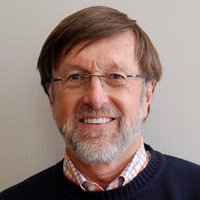I am in my ninth year of service as a Zen Hospice Project volunteer at San Francisco's Laguna Honda Hospital. The dying, whom I serve, are my teachers. One of their most important lessons has been about listening.
There was Chloe, a woman who had lived on our City's streets for years. She was schizophrenic and dying of breast cancer. One evening, I sat by her bed as she told me of how she had lost custody of her infant children. Now grown, she had never again seen them. She knew nothing of their whereabouts. Nor, did she believe, they knew anything of her. Chloe was attempting to reconcile her long held belief that she was a "terrible mother" with her imminent death. As I sat at her bedside, I took in everything. I only would ask an occasional question, to clarify something or to help her move forward. Otherwise, I was silent. After hour or so, Chloe discovered that giving up her boys was the best "mothering" she could offer, given her mental health. Only a day or two before her death, she found her answer and a long sought peace.
By its nature, listening appears passive, requiring no particular skill. From my experience with Chloe and so many others, I have found nothing could be further from the truth. Listening is an art and, as with all arts, it requires practice.
With Chloe, I needed to be aware of my mind and body to remain available, to make room for her exploration. I could not be distracted. She would know it. I also had to be empathetic. I could not judge her. Otherwise, I would interfere with her process. By listening, I made Chloe feel valued and validated. I supported her effort.
As a lawyer, I bring the art of listening to my work. As with Chloe, I listen to my clients, public officials, judges and opponents. In those moments, it's about them, not me. I don't interrupt. I appreciate what I hear, withholding judgment. And, I allow for silence.
